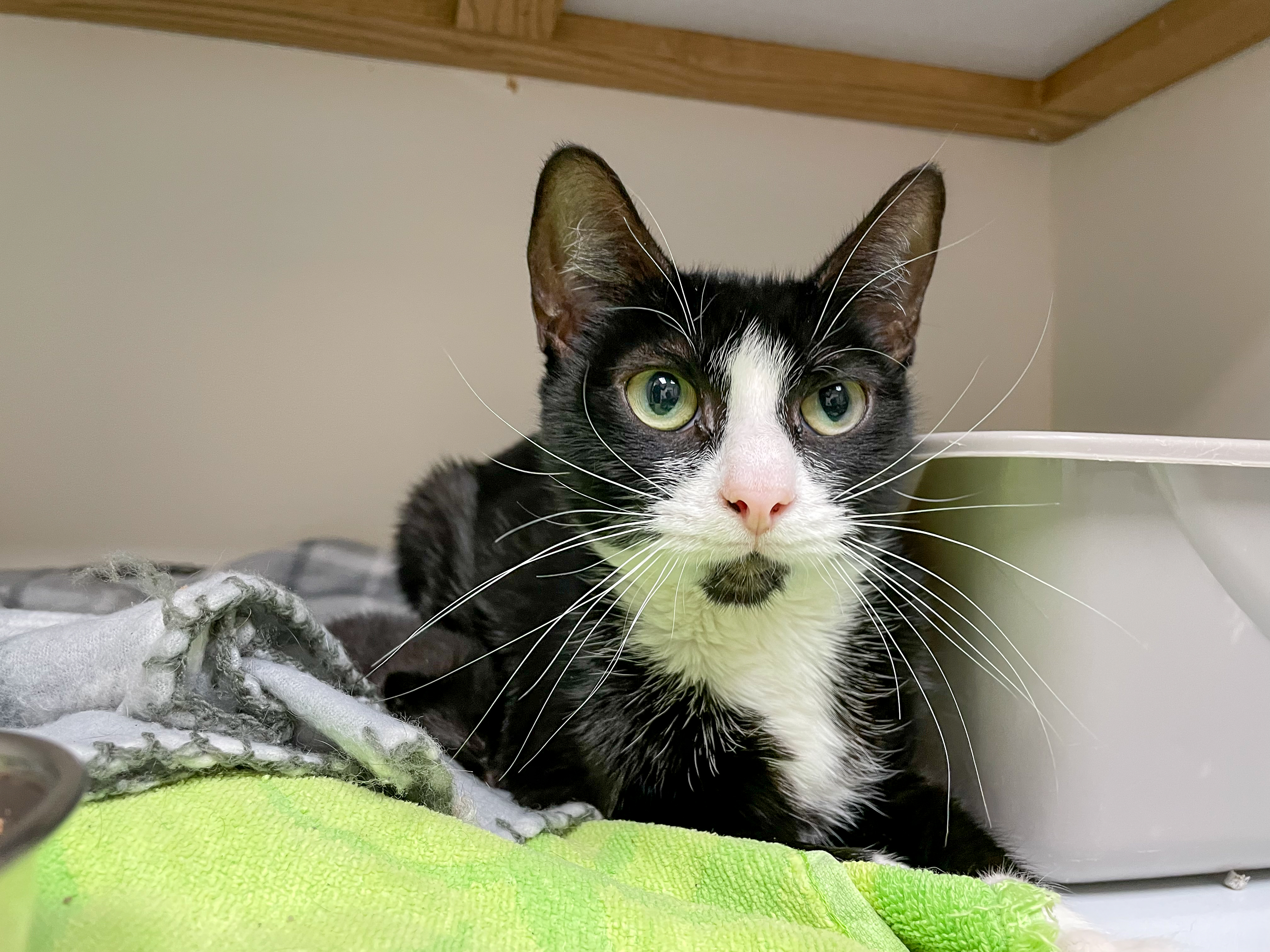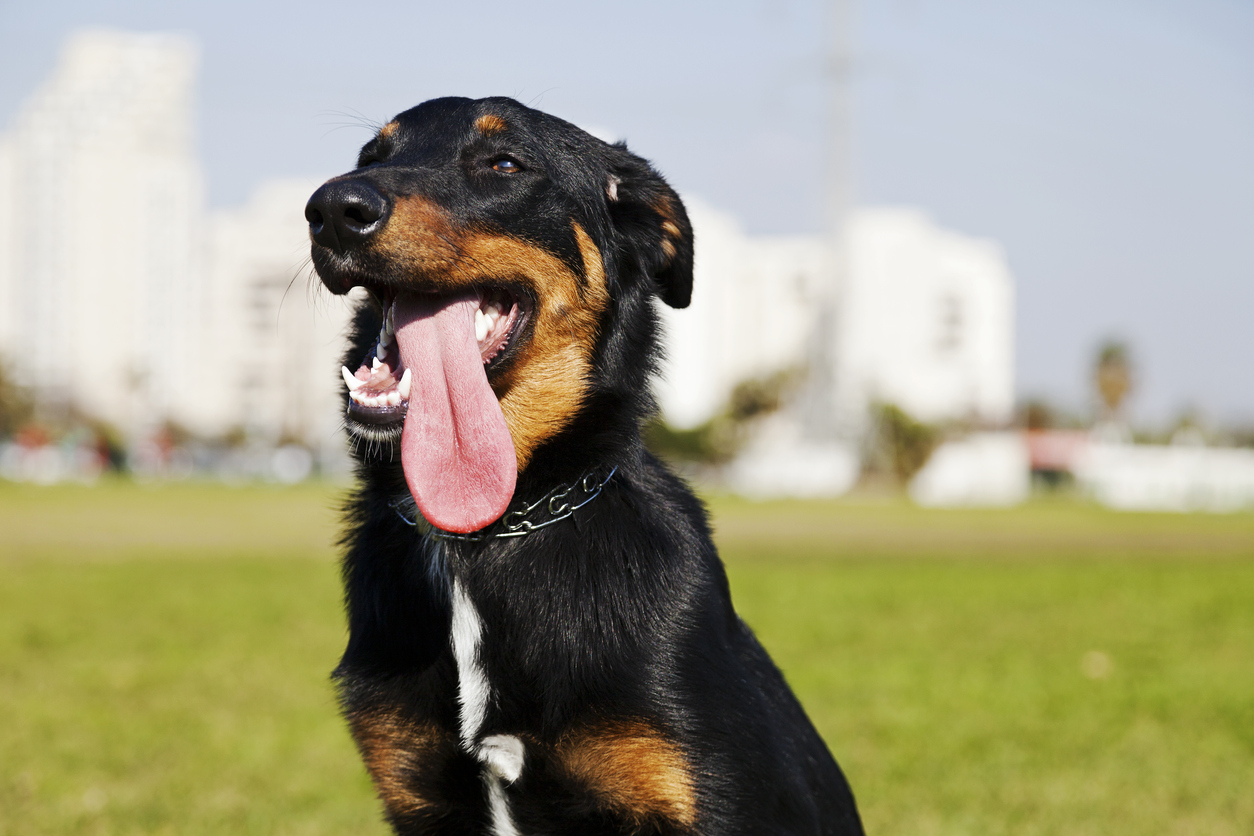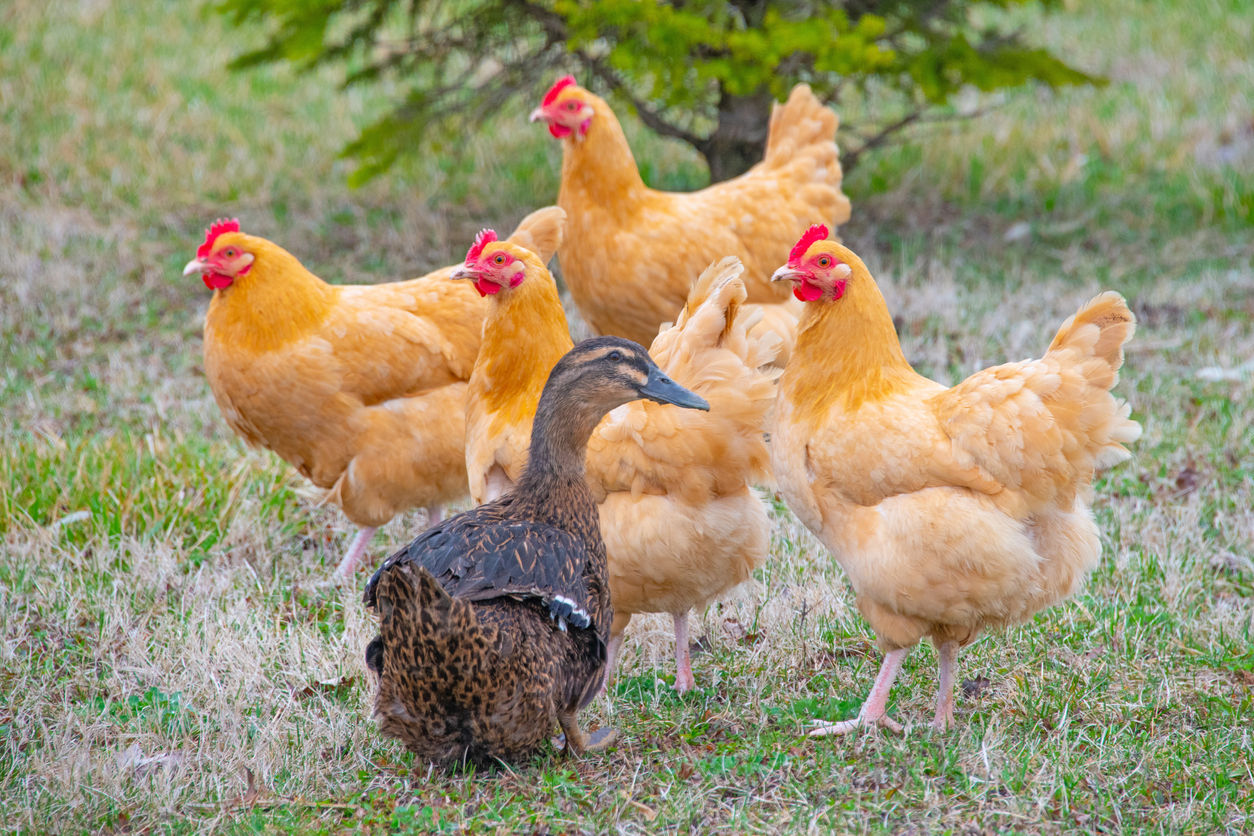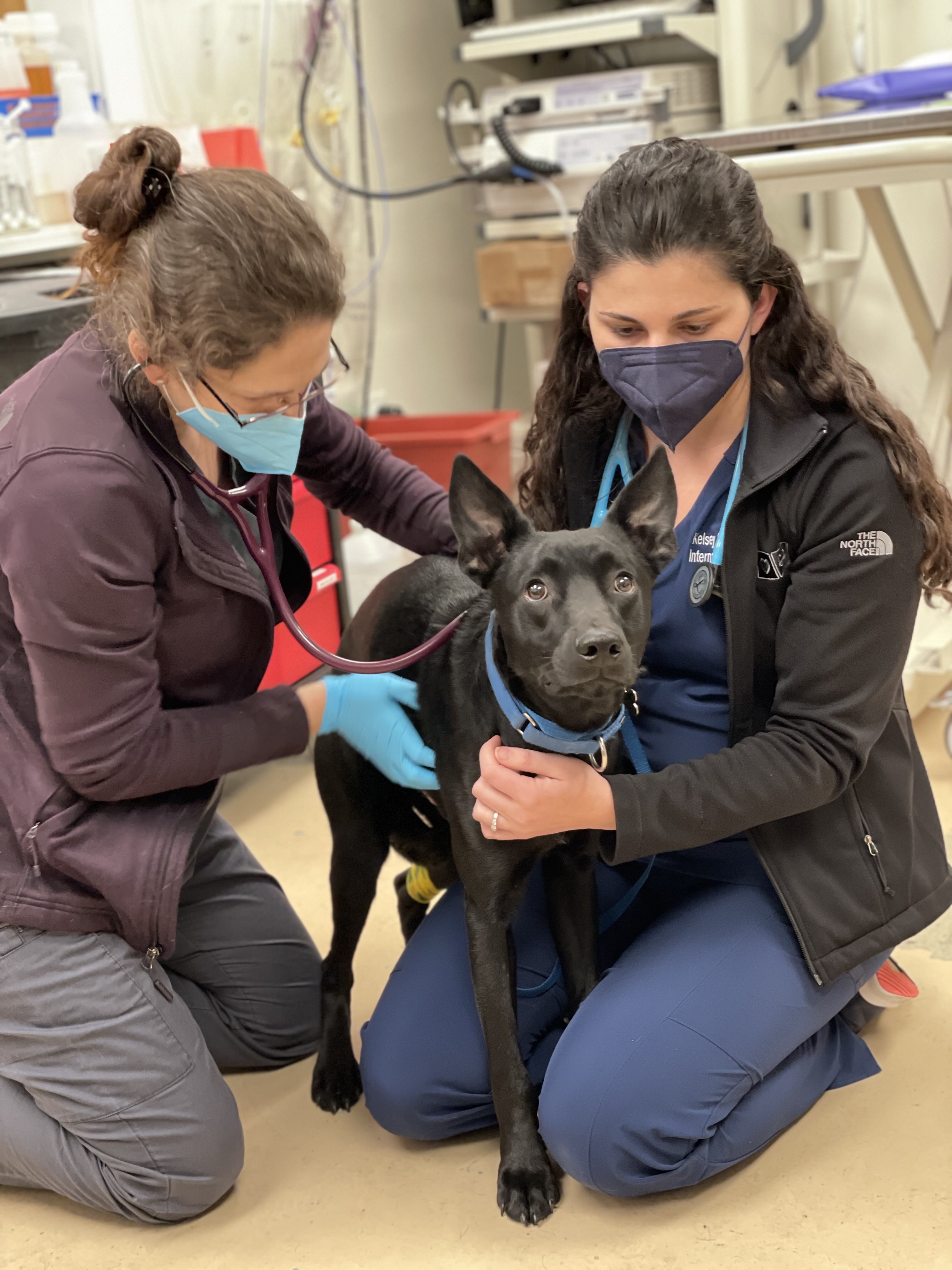 As anyone with a pet can tell you, when the COVID-19 pandemic first surged onto the scene in early 2020 suddenly the simple task of booking a veterinary appointment became an incredible challenge. As hospitals nation-wide closed their doors to all but the most critical emergencies, routine care such as vaccinations and spay and neuter surgeries came to a standstill. When a well-intentioned woman rescued four pregnant cats off the street at the beginning of 2020, she had no idea that three years later she would find herself with well over 60 cats.
As anyone with a pet can tell you, when the COVID-19 pandemic first surged onto the scene in early 2020 suddenly the simple task of booking a veterinary appointment became an incredible challenge. As hospitals nation-wide closed their doors to all but the most critical emergencies, routine care such as vaccinations and spay and neuter surgeries came to a standstill. When a well-intentioned woman rescued four pregnant cats off the street at the beginning of 2020, she had no idea that three years later she would find herself with well over 60 cats.
Continue Reading
 As the weather forecast soars well into the 90s, veterinary hospitals brace for patients suffering from heatstroke. This potentially deadly condition can set in rapidly, especially for certain dogs - knowing the risk factors, warning signs, and how to keep your pup cool are essential for making sure that both you and your pets can safely enjoy the summer.
As the weather forecast soars well into the 90s, veterinary hospitals brace for patients suffering from heatstroke. This potentially deadly condition can set in rapidly, especially for certain dogs - knowing the risk factors, warning signs, and how to keep your pup cool are essential for making sure that both you and your pets can safely enjoy the summer.
Continue Reading
 It’s the season to start gardening – but for those of us with cats and dogs, sometimes beautiful flowers can hide a deadly danger. Whether you’re looking to exclusively grow a pet-safe garden or want to ensure any toxic plants are kept out of reach, researching your flower choices is the easiest way to ensure you can cultivate a garden that’s both beautiful and safe.
It’s the season to start gardening – but for those of us with cats and dogs, sometimes beautiful flowers can hide a deadly danger. Whether you’re looking to exclusively grow a pet-safe garden or want to ensure any toxic plants are kept out of reach, researching your flower choices is the easiest way to ensure you can cultivate a garden that’s both beautiful and safe.
Continue Reading
 Highly Pathogenic Avian Influenza (HPAI) is a deadly disease that affects both wild and domestic birds including ducks, chickens, turkeys, geese, guinea fowl, quail, and more. This disease is extremely contagious and often fatal, and was recently confirmed in wild mallard ducks in Middlesex and New London counties, in addition to a flock of backyard chickens in Long Island. Due to the serious risk HPAI poses, the Connecticut Department of Agriculture has issued a warning to all poultry owners.
Highly Pathogenic Avian Influenza (HPAI) is a deadly disease that affects both wild and domestic birds including ducks, chickens, turkeys, geese, guinea fowl, quail, and more. This disease is extremely contagious and often fatal, and was recently confirmed in wild mallard ducks in Middlesex and New London counties, in addition to a flock of backyard chickens in Long Island. Due to the serious risk HPAI poses, the Connecticut Department of Agriculture has issued a warning to all poultry owners.
*As of March 2nd, HPAI has been confirmed in a flock of backyard pet birds in New London county.
Continue Reading

WARNING for pet owners – we’re seeing lots of dogs lately with a serious disease called Leptospirosis.
Leptospirosis is a highly contagious bacterial disease that infects both people and animals and can cause kidney and liver failure. Wildlife such as raccoons and rats are common carriers of infection. Since the bacteria prefers wet environments, all the rain we’ve had this year has contributed to an outbreak of Leptospirosis cases in Connecticut. Dogs can contract Leptospirosis by drinking or swimming in infected puddles, lakes, and rivers, coming into contact with infected urine, or by eating infected rodents.
Signs of Leptospirosis include fever, lethargy, increased thirst/urination, vomiting, diarrhea, and jaundice (yellowed skin). Untreated, it can cause fatal kidney or liver failure. Early and aggressive treatment is critical to fighting off the infection and minimizing organ damage.
Because Leptospirosis also infects people, it’s important to take extra precautions. Preventative measures for dogs include annual Leptospirosis vaccination. This vaccine is highly recommended especially if your dog is exposed to wildlife or other animals. Other preventative measures include controlling rodent populations and removing standing water in your environment.
If you notice your dog showing any symptoms of Leptospirosis, bring them to your veterinarian ASAP! Staying informed and aware of this disease, vaccination of your dogs, and minimizing environmental risks, will help keep your pets and your family safe and healthy.
Why Is My Veterinarian So Busy?!
If you’ve taken a trip to the veterinarian sometime over the past several months, you may have noticed that things seemed different during your visit. If you called your primary care hospital to ask about coming in that day, you were likely told that the schedule was full and that you’d need to wait several days or weeks for your pet to see a doctor. If you went to an emergency or urgent care hospital you may have found yourself waiting for several hours for your pet to be admitted. Wait times and busy schedules have always existed, but over the last year they’ve started climbing rapidly – and there’s no sign of them slowing down.
So why are veterinarians so busy?
Continue Reading
 As anyone with a pet can tell you, when the COVID-19 pandemic first surged onto the scene in early 2020 suddenly the simple task of booking a veterinary appointment became an incredible challenge. As hospitals nation-wide closed their doors to all but the most critical emergencies, routine care such as vaccinations and spay and neuter surgeries came to a standstill. When a well-intentioned woman rescued four pregnant cats off the street at the beginning of 2020, she had no idea that three years later she would find herself with well over 60 cats.
As anyone with a pet can tell you, when the COVID-19 pandemic first surged onto the scene in early 2020 suddenly the simple task of booking a veterinary appointment became an incredible challenge. As hospitals nation-wide closed their doors to all but the most critical emergencies, routine care such as vaccinations and spay and neuter surgeries came to a standstill. When a well-intentioned woman rescued four pregnant cats off the street at the beginning of 2020, she had no idea that three years later she would find herself with well over 60 cats.
 As the weather forecast soars well into the 90s, veterinary hospitals brace for patients suffering from heatstroke. This potentially deadly condition can set in rapidly, especially for certain dogs - knowing the risk factors, warning signs, and how to keep your pup cool are essential for making sure that both you and your pets can safely enjoy the summer.
As the weather forecast soars well into the 90s, veterinary hospitals brace for patients suffering from heatstroke. This potentially deadly condition can set in rapidly, especially for certain dogs - knowing the risk factors, warning signs, and how to keep your pup cool are essential for making sure that both you and your pets can safely enjoy the summer. It’s the season to start gardening – but for those of us with cats and dogs, sometimes beautiful flowers can hide a deadly danger. Whether you’re looking to exclusively grow a pet-safe garden or want to ensure any toxic plants are kept out of reach, researching your flower choices is the easiest way to ensure you can cultivate a garden that’s both beautiful and safe.
It’s the season to start gardening – but for those of us with cats and dogs, sometimes beautiful flowers can hide a deadly danger. Whether you’re looking to exclusively grow a pet-safe garden or want to ensure any toxic plants are kept out of reach, researching your flower choices is the easiest way to ensure you can cultivate a garden that’s both beautiful and safe. Highly Pathogenic Avian Influenza (HPAI) is a deadly disease that affects both wild and domestic birds including ducks, chickens, turkeys, geese, guinea fowl, quail, and more. This disease is extremely contagious and often fatal,
Highly Pathogenic Avian Influenza (HPAI) is a deadly disease that affects both wild and domestic birds including ducks, chickens, turkeys, geese, guinea fowl, quail, and more. This disease is extremely contagious and often fatal, 